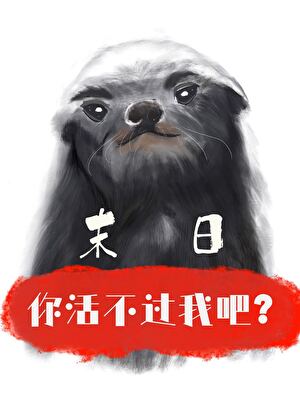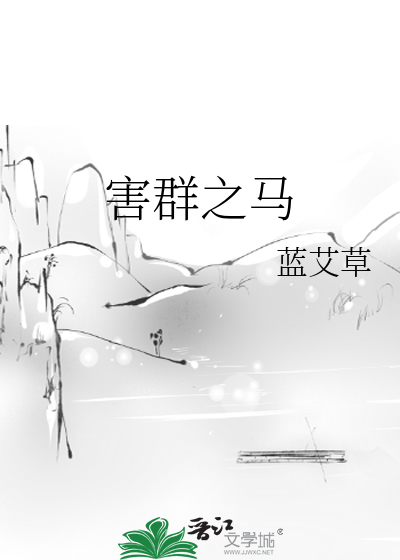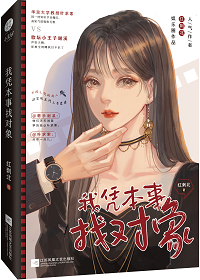Yan Xue had always lived by one principle: reason with those who have a sense of shame, and fists with those who don’t.
Father Zhou clearly wasn’t the former, so there was no point in reasoning with him. Hoping for his conscience to awaken was futile—it was better to make him fear the consequences.
At least fear worked on people like him. Yan Xue glanced at Zhou Wenhui. "It all depends on whether you can steel yourself for this."
If it had been the Zhou Wenhui of years past, she wouldn’t have been able to. But now, after working for several years, she knew some things had to be cut off decisively.
If she hesitated, some people would only push further, and not only would she suffer—Weiguo would too.
They had worked hard to build the life they had now, and she refused to let it be ruined. Besides, if her father set his sights on her, it would affect Yan Xue as well—after all, she was the one who had brought Zhou Wenhui here.
Thinking of this, Zhou Wenhui’s gaze grew firmer. She met Yan Xue’s eyes without hesitation. "Tell me what to do."
In the following days, Mother Zhou visited once more. She didn’t mention her purpose, just busied herself tidying Zhou Wenhui’s home.
Elders had a knack for this—no matter how spotless a house was, they could always find something to do, then scold you for not keeping your life in order.
When she left, Zhou Wenhui bought some things for her to take back. Mother Zhou chided her, "You should save your money. Why waste it on these?"
"Not all of it’s for you." Zhou Wenhui pointed to a pair of cloth shoes inside. "Didn’t Wenmin say her feet have been growing fast lately? That her shoes are too tight?"
Having gone through it herself, she couldn’t help but feel for her younger sister still stuck in that household. If she could help, she would.
Since the items were already bought, Mother Zhou didn’t argue further. But when Father Zhou questioned her at home, she could only mutter helplessly that she hadn’t been able to persuade their daughter.
"That girl’s grown too bold!" Father Zhou’s temper flared instantly. He slammed his cigarette down on the table in frustration.
"I don’t think she’s unwilling," Mother Zhou tried to explain. "She’s just a temp at that cultivation center—how much influence could she have?"
In truth, that wouldn’t be the case for long. The bureau was set to release a batch of permanent positions that autumn, and the cultivation center was likely to secure at least one.
But the Zhou family didn’t know this. Father Zhou scowled. "So what if she’s a temp? She was trained by Technician Yan. Can’t she just ask for a favor?"
But favors weren’t so easily given. Every bit of goodwill spent was a bit lost, and Technician Yan owed them nothing.
Besides, when their son Jianmin graduated last year, Father Zhou hadn’t been in any hurry—he’d let Jianmin go to the countryside. Yet now, he was scrambling to secure a job for some factory director’s son…
Even if they hadn’t known about Wenhui’s transfer to the county last year, Mother Zhou couldn’t help feeling Father Zhou only cared about himself, not his children.
She didn’t dare say it aloud, but Father Zhou still berated her for being useless. He even considered sending their second daughter next time—Wenmin could at least talk to Wenhui.
But the very next day, as soon as he arrived at work, he was summoned to the office along with Factory Manager Ma.
Baffled, they listened as Secretary Tang turned to Manager Ma. "I’ve heard that Father Zhou’s promotion to deputy director came after he gifted you an old ginseng root?"
Manager Ma’s face paled. "That’s impossible!" Father Zhou also hurriedly denied it. "Who’s spreading such nonsense?"
"Yet I’ve received a detailed letter of complaint—even specifying the size of that ginseng."
Secretary Tang placed a letter on the desk but didn’t show it to them. "This is serious. If this had gone to the committee instead of me…"
If it had gone to the committee, they wouldn’t be having this conversation. They’d have lost their jobs on the spot and been dragged out for public criticism.
Both men looked grim. They couldn’t fathom who would dredge up something from so long ago.
Even with Secretary Tang handling it, there was no easy way out. Both were suspended pending an internal investigation.
And they wouldn’t withstand scrutiny—especially Father Zhou. Few knew whether Manager Ma had accepted that ginseng, but many remembered how Father Zhou had tried to marry his daughter into the Jiang family.
By the investigation’s end, Father Zhou was stripped of the deputy director title he’d held for barely a few years. Even his old team leader position was gone—he was demoted to a regular worker.
A team leader’s position might have been minor, but it came with a five-yuan monthly bonus on top of wages—not to mention a sliver of authority.
Father Zhou seethed. For nights, he lay awake, racking his brain over who could’ve written that damned letter.
Later, when Manager Ma privately pressed him about securing a job for his son—now at risk of being sent to the countryside—Father Zhou suddenly wondered: Could it have been that ungrateful daughter of his?
Why else would this come up now, after he’d been deputy director for four years?
He immediately took a bus to the county, stormed into Zhou Wenhui’s workplace, and struck her across the face. "Look what you’ve done!"
Zhou Wenhui took the first blow but blocked the second. "If you come again, I’ll write another letter—straight to the committee."
Father Zhou’s hand froze mid-air. "You—you heartless wretch!"
She didn’t flinch. "Worst case, you lose your job. I’ll support Mother, Wenmin, and Jianlin myself. Better than being bullied by you."
Her calm delivery proved she meant every word.
But while Zhou Wenhui was ready to burn bridges, Father Zhou wasn’t. Without his job, would she really support him?
At his age, could he really start farming in some village?
In the end, Zhou Wenhui had security escort him out. He left livid but powerless.
He thought of finding allies, but Yan Xue and the others ignored him. Even the guard, initially confused, took one look around and kept silent.
Watching Father Zhou’s furious retreat from the cultivation center, Yan Xue wrung out a cold towel and handed it to Zhou Wenhui. "Put this on it."
"Thank you." She pressed it to her face, then smiled weakly at the concerned onlookers. "I’m fine. At least it’s settled."
Father Zhou’s tyranny at home had always relied on being the sole breadwinner. He’d never gamble that away.
True enough, by September, Father Zhou hadn’t returned. Mother Zhou stayed away too. Only Liu Weiguo made time to visit from the provincial capital, bringing gifts aplenty.
I bought Airong a cloth doll, something not available in the county’s department store. Little Fatty gave her a set of building blocks, which also couldn’t be found in the county.
Airong adored them so much that she wouldn’t let go of them—holding them while eating, sleeping, and even insisting on taking them to daycare, until Zhou Wenhui finally took them away.
Little Fatty, too, spent days enthusiastically studying the blocks at home, pouring them out from his toy-filled cardboard box every day, playing with them, and then packing them back in.
Meanwhile, Yan Jigang sat at the table, reciting English words like "hello" and "good morning," while Little Fatty echoed him from the kang, "hello," "good morning."
After "morning," he whispered to Yan Xue, "What kind of cat is 'morning'?" careful not to disturb his uncle’s studies.
Yan Xue chuckled. "'Morning' isn’t a cat. It’s a word from a foreign language, spoken by people very, very far away."
When autumn arrived and school started, Yan Jigang successfully advanced to the first year of middle school, where he began learning a foreign language. Lately, he’d been coming home and reciting the words he’d learned.
But foreign language classes in middle schools at the time were quite haphazard—teachers taught whatever they knew. In the same grade, some classes learned Russian, others Japanese, and some English.
Yan Jigang’s class was assigned English. The young boy secretly told Yan Xue that most of his classmates wished they could learn Japanese instead.
After all, China and Japan had just established diplomatic relations, and trade between the two countries was growing. Learning Japanese might be more useful in the future.
Yan Xue, however, thought learning English wasn’t a bad idea—it would become the dominant language. Besides, the U.S. president had visited the previous year, signaling a thaw in relations.
The only problem was Yan Jigang’s teacher’s pronunciation. To Yan Xue’s ears, it wasn’t just Chinese-accented English—it had a strong northeastern twang.
She held back for a while but finally couldn’t resist asking her brother, "Do all your teachers teach like this?"
"Good morning." A calm male voice sounded from the doorway. Yan Xue looked up and met Qi Fang’s gaze as he stepped inside.
His pronunciation immediately reminded Yan Xue of the time he’d fixed the transistor radio and muttered about soccer fans fighting.
Qi Fang’s eyes lingered on Yan Xue. The way she’d questioned Yan Jigang made it clear she knew his pronunciation was off.
But rural middle schools didn’t teach foreign languages—just like they didn’t teach people how to grow mushrooms, recognize welding tools, or identify lemons.
Some questions, when left unanswered, slowly turned into a book in one’s heart. Flipping through its pages could be quite entertaining, and there was no rush to reach the ending.
Maybe one day, the book would turn a page on its own, revealing more to him. So Qi Fang didn’t press further.
Instead, Yan Jigang repeated Qi Fang’s pronunciation, blinking his big eyes. "Brother-in-law, have you studied English too?"
"Mn." Qi Fang glanced at Yan Xue before explaining, "My teacher said we shouldn’t just learn Soviet technology. We needed to look beyond."
Su Changqing had been quite forward-thinking. During the Sino-Soviet honeymoon period, Soviet experts had barred Chinese researchers from accessing Western materials.
It was an ideological issue, but much of Soviet technology had actually been captured from Europe during World War II, lagging behind Western advancements. For example, the RT-12 tractors used in forestry farms were derived from captured German models.
China’s technology, inherited from the Soviets in the 1950s, was equivalent to Western tech from the 1940s—already outdated and rarely updated.
Take FAW’s Jiefang trucks, for instance—they’d been in production for over a decade and would continue unchanged for thirty more years before a new model was introduced.
Su Changqing had been a true innovator in research, unafraid of breaking boundaries and never hoarding knowledge. It was just a shame he’d lived in the wrong era.
Yan Xue studied Qi Fang and found him watching her too, his gaze steady—probably also thinking about his teacher.
But unlike back then, he was no longer alone. Now, he had Yan Xue in front of him, Little Fatty on the kang, and a little brother-in-law at the table.
In that short time, Little Fatty had already tugged at Yan Xue’s sleeve, pointing at the blocks he’d assembled. "House."
Yan Jigang repeated the pronunciation again and pointed to another word. "Then how do you say this one?"
Qi Fang pushed aside his thoughts and helped his brother-in-law with English. Later that evening, when things had quieted down, he pulled out a letter he’d brought home from work.
"Who’s it from?" Yan Xue asked casually as she walked in, drying her freshly washed hair.
"Zhou Li." Qi Fang handed her the letter. "Read it." Then he took the towel from her and began drying her hair himself.
His movements were practiced and gentle, so Yan Xue naturally unfolded the letter and skimmed its contents.
To be honest, it was a bit surprising—but considering it was already the latter half of 1973, perhaps not entirely unexpected.
The letter vaguely mentioned that some veteran cadres might have their reputations rehabilitated. Yan Xue turned to Qi Fang. "Does that mean your father and brother could come back?"
"Don’t know." Qi Fang lowered his eyes, his expression calm. But if Zhou Li had written to him about it, there was at least some possibility.
The original novel hadn’t specified whether Qi Fang’s father and brother returned at this point or years later.
And Qi Fang had unresolved issues with his family. Later, when he founded Changqing Heavy Industries and brought down Wu Xingde, he hadn’t relied on his family at all—not even seeing his father one last time.
As if reading her thoughts, Qi Fang squeezed the damp ends of her hair. "Back then, when I went to Yanjing to beg for help for my teacher, my father and brother shut the door on me."
His tone was flat, but the decades-long resentment he carried suggested his feelings were anything but calm.
"I stood outside for hours and never even saw my father," Qi Fang continued emotionlessly. "My brother came out and berated me instead."
He moved the towel from her hair ends to the roots, speaking as if recounting someone else’s story. "He said when others were in trouble, they feared implicating their families. But me? I insisted on meddling, as if I wanted to bring disaster upon them. He called me ‘the child Teacher Su raised for the Qi family’ and said I might as well change my surname to Su."
No wonder he’d held onto that resentment. At his most desperate, his family—his last hope—had rejected him so harshly.
By the time he returned from Yanjing, his teacher was already dead. Some wounds left thorns in the heart that couldn’t easily be pulled out.
And he hadn’t had the luxury of dwelling on it. Wu Xingde had swindled his teacher’s research and risen through the ranks. To drag him down, Qi Fang had to be more ruthless and work harder than anyone.
What surprised Yan Xue was that Qi Fang, who usually avoided bringing up the past, had chosen to speak of it tonight.
As if knowing what she was thinking, Qi Fang paused his movements and softened his voice. "You should know everything clearly, so you won’t be put in a difficult position later."
Though with her intelligence, she could probably guess most of it even if he didn’t say anything, why should she have to guess at all?
This made Yan Xue’s eyes curve into a smile. "Why would I be in a difficult position? As long as you don’t feel troubled, that’s all that matters."
"I’m fine," Qi Fang said, having already weathered the criticism. "If they come to you, just push all the blame onto me."
"Then why didn’t you push everything onto me when the Xue family came looking for you before?"
Yan Xue still remembered how he had confronted Xue Yongkang back then—not once did he say it was her decision or that she had refused.
That was the first time she had truly felt that someone could stand in front of her and shield her. So why couldn’t she do the same for him?
Yan Xue smiled and tucked a loose strand of hair behind her ear. "Things might not even reach that point. It’s just the beginning of a rumor—the person in question hasn’t even returned yet."
Under the light, her eyes were bright and clear, making Qi Fang murmur an "Mm" in response. "Then we’ll do as you say."
As he spoke, he tucked another stray lock behind her ear. "Whatever you want to say or do, it’s up to you."
"Aren’t you afraid I’ll persuade you to reconcile with your family?" Yan Xue teased. "After all, harmony at home brings prosperity."
But Qi Fang was firm. "You wouldn’t." He gently pinched her earlobe. "You never make decisions for others lightly."
That was true of Yan Xue. Some feelings could only be truly understood by the person experiencing them. What some called "persuasion" was often just forcing their own opinions onto others.
In both lifetimes, she had been on the receiving end of too much unsolicited advice. She disliked it and refused to impose it on others. She hadn’t expected Qi Fang to see this so clearly.
Her smile deepened as she caught his hand and leaned closer. "As long as you’re happy, that’s all that matters."
Qi Fang wrapped his arms around her, as if holding an entire world of peace. "Mm." His heart settled into calm.
Unfortunately, before they could say anything more, the sound of little footsteps approached—Qi Yanyu, the self-appointed "cheating patrol captain," had finished listening to the radio broadcast.
Qi Fang hesitated for only a second between two choices: placating his son now and continuing the conversation later, or provoking him and forfeiting any chance of continuing tonight. He decisively chose the former.
So when the little one ran in, glancing left and right but finding nothing amiss, he happily threw himself into his mother’s arms.
By mid-August, Qi Fang’s modifications to the Jicai-50 had undergone over a month of operation without any performance issues.
When the report reached Secretary Tang, he immediately allocated another sum to purchase parts. By September, the two most severely affected machines had also been repaired.
Now, they just had to wait for colder weather. To be honest, Secretary Tang wasn’t entirely confident. The previous hydraulic system had worked fine too—who could’ve predicted it would fail once they hit the mountains?
So when the logging season began, he instructed the forest farms that had replaced their systems to report any issues immediately.
The forest farm directors, equally uncertain, took it upon themselves to oversee operations on the mountain, watching closely to see if the newly installed systems would hold up.
An experienced tractor driver who had seen Master Tang test the machines earlier remarked, "As long as the cold doesn’t affect it, there shouldn’t be any problems."
"You mean it’s really as reliable as the older Jicai-50 models from other cities?" The forest farm director was skeptical.
After all, they’d been waiting for provincial funds to replace the systems. Now that they’d improvised their own fixes, who wouldn’t have doubts?
The old tractor driver wasn’t one for lengthy explanations. He put on his hat and gloves, climbed into the machine, adjusted to it quickly, and soon pushed it to maximum power.
As he hauled a heavy load of timber downhill, the forest farm director’s eyes widened. One trip—no issues. Two trips—still fine. Three trips…
By the end of the shift, other tractor crews couldn’t resist asking, "So? Does it really work?"
"Of course it works," the old driver said. "Ran at full power all day without a hitch."
Secretary Tang received the news a little later.
But whether early or late, it was good news. After hearing it, Secretary Tang finally felt a weight lift from his chest.
Not only that, but these three modified machines were operating at peak efficiency, hauling significantly more timber daily than before. Soon, other forest farms began inquiring about upgrading their own machines.
Without a comparison, they hadn’t noticed the difference. But now, with tangible results right in front of them, who wouldn’t want to boost productivity and earn recognition as an advanced unit this year?
However, Qu Mingli’s earlier request for forest farms to assess their machinery wear had inevitably leaked. Soon, towns across the county learned about the planned system upgrades.
Now that the modifications had proven successful, demand wasn’t limited to just those three forest farms. Secretary Tang had been fielding calls from all over.
It gave him a headache. When he ran into Qu Mingli at the bureau, he complained, "Everyone wants upgrades now. Where’s the budget for that?"
"Everyone wants to contribute more to the nation and strive for excellence," Qu Mingli replied smoothly, entirely unsurprised by the situation.
If no one had upgraded, it wouldn’t be an issue. But now that some had, those left behind would lag.
Yet the bureau truly lacked the funds. The first three modifications had only been possible thanks to surplus earnings from the mushroom cultivation initiative.
"If necessary, have interested towns cover the costs upfront," Qu Mingli suggested. "We’ll reimburse them later."
He reminded Secretary Tang, "Even the expenses for these three machines will eventually be reported to the city and province."
Even if they’d improvised the repairs, the financial burden shouldn’t fall on them—the faulty systems had been procured by the province, not caused by local misuse.
Secretary Tang’s eyes lit up with understanding. He promptly called the town forestry bureaus: if they wanted upgrades, they’d have to front the costs for parts.
Of course, it wasn’t a handout—the county bureau would keep records and reimburse them once provincial funds were released.
Now, the decision of whether—and how many—to upgrade rested entirely on each town’s financial capacity.
Chengshui Town, the wealthiest, immediately committed to upgrading the worst-performing machine in each forest farm.
Meanwhile, Liu Lake Town was beside itself. After repeated confirmations, they even sought out Deputy Director An for backdoor favors.
"You expect us to pay upfront? With what? Our bureau doesn’t have that kind of money! The county upgraded theirs—why can’t they do the same for us?"
Those had been emergency fixes. If they made an exception for Liu Lake Town now, every other town would riot.
Deputy Director An didn’t dare to broach the subject directly. "Didn’t you guys harvest mountain greens to sell to Japan this year? Covering the cost of a few machines shouldn’t be a problem, right?"
The secretary from Liuhu Town’s Forestry Bureau choked on his words. He had been quite talkative earlier, but suddenly fell silent.
Deputy Director An noticed something was off. "What’s wrong? Didn’t the sales go well? Harvesting mountain greens doesn’t even cost anything, does it?"
Harvesting mountain greens might not require capital, but there still had to be greens on the mountain to harvest…
The secretary from Liuhu Town remained tight-lipped, unable to explain how they’d worked for over a month, earned little profit, and ended up stirring discontent among the people.
The main issue was that after settling the accounts, the share each person received was pitiful—less than four mao a day, barely worth the effort.
"We couldn’t harvest much this year, so there was nothing we could do. But next year will be better. It’s not like the mountain will yield nothing every year."
He still tried to justify himself. "Besides, it’s not just our town—Donggou Town doesn’t have the funds to cover it either. Did you think every town was as well-off as Chengshui?"
That was true. Deputy Director An was about to nod in agreement when a voice sounded from outside. "Here to hand in the money, aren’t you? For the tractor modifications?"
The voice carried a hint of amusement—it was the secretary from Donggou Town’s Forestry Bureau. The Liuhu Town secretary’s heart skipped a beat.
If they were already here at the county office to submit payment, did that mean Donggou Town had actually profited from growing mushrooms this year?







